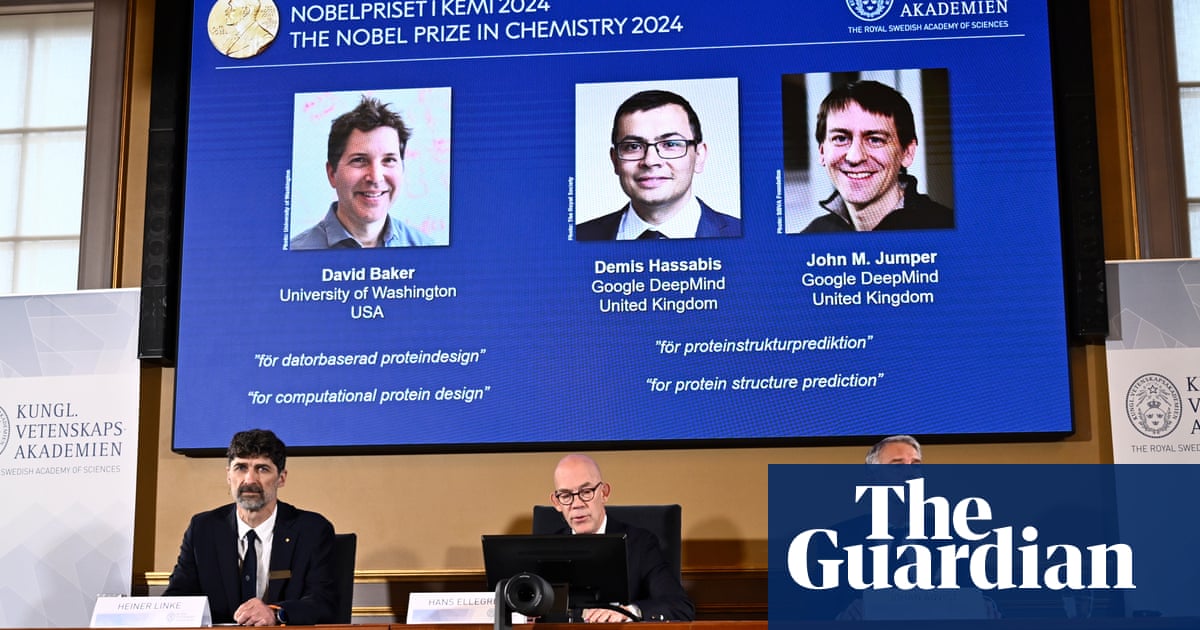 |
|
The 2024 Nobel Prize in Chemistry has been awarded to two scientists from Google DeepMind and an American biochemist for their groundbreaking work in predicting and designing the structure of proteins. This recognition highlights the transformative power of artificial intelligence and computational biology in unraveling the secrets of life's fundamental building blocks.
Demis Hassabis, the founder of DeepMind, and John Jumper, the lead developer of the company's AI model AlphaFold, share half of the prize. AlphaFold, launched in 2020, has revolutionized protein structure prediction. By analyzing a protein's amino acid sequence, AlphaFold can accurately predict its three-dimensional shape. This ability has opened up a vast range of possibilities for understanding protein function, designing new drugs, and developing innovative materials.
The other half of the Nobel Prize goes to Professor David Baker of the University of Washington. Baker's research has focused on creating entirely new proteins that do not exist in nature. His team has successfully engineered proteins with diverse applications in medicine, including the development of novel vaccines for viruses like coronavirus, and in materials science, leading to the creation of nanomaterials and tiny sensors.
The significance of this research lies in the central role proteins play in all biological processes. They act as enzymes, hormones, antibodies, and structural components, driving the chemical reactions that sustain life. By understanding and manipulating protein structures, scientists can unlock the potential to address a wide range of challenges, from tackling diseases to creating sustainable materials.
The Nobel Committee for Chemistry has emphasized the profound impact of these discoveries, stating that they fulfill a long-standing dream of predicting protein structures and open up a new era of protein design. The ability to create and manipulate proteins has immense potential to revolutionize fields like medicine, agriculture, and materials science, ultimately improving human health and well-being.
Source: Google DeepMind scientists win Nobel chemistry prize
